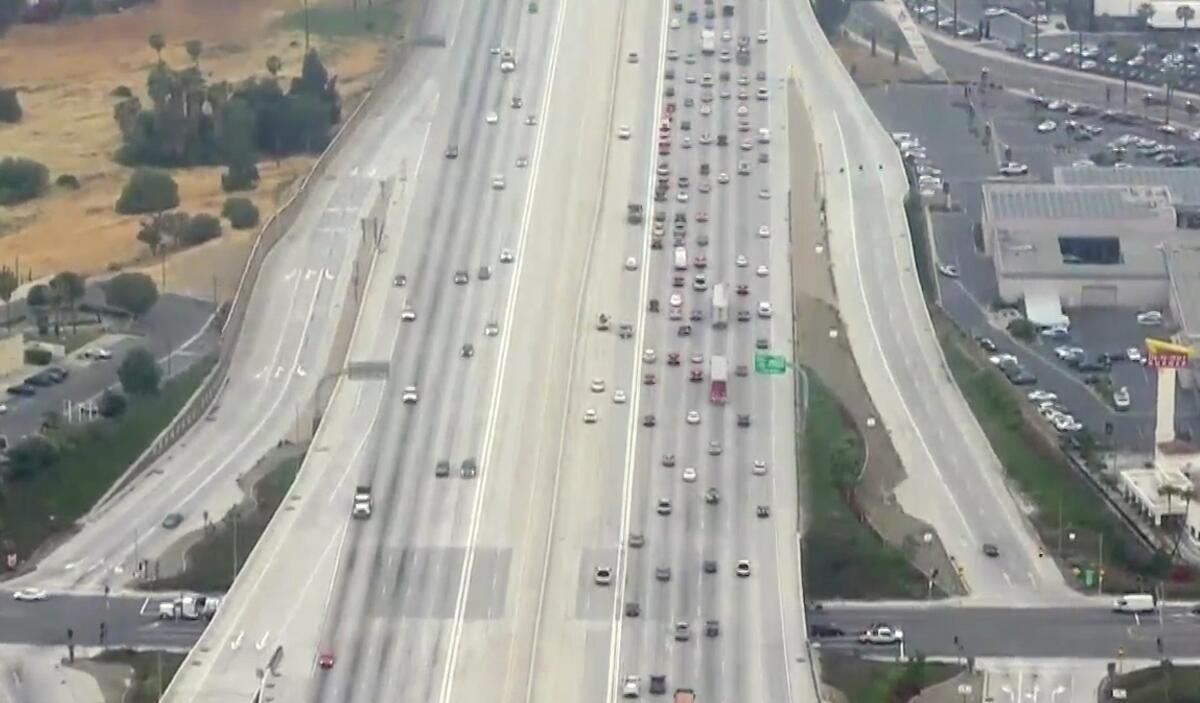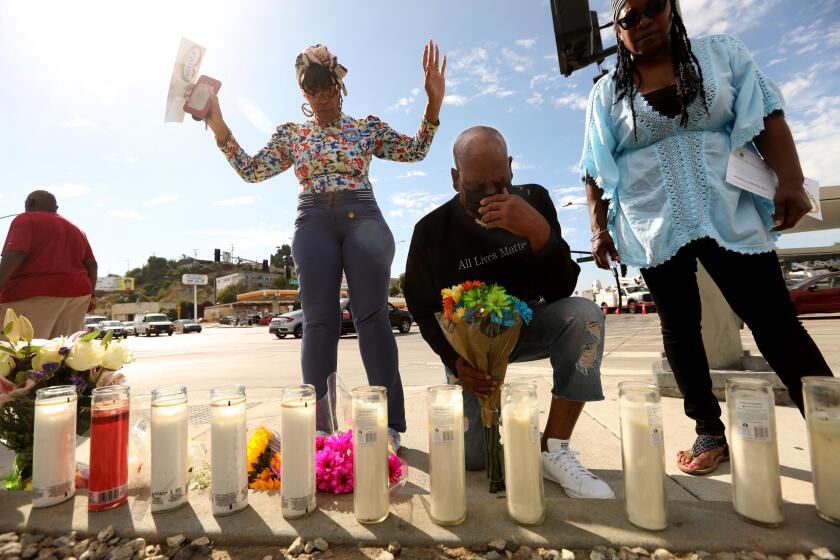L.A. is spending tens of billions of dollars to make climate change and traffic worse

- Share via
Los Angeles County’s transportation agency, Metro, is building over 100 miles of rail in the next 30 years. It’s the most aggressive transit expansion plan in the country — as it should be, for the nation’s most populous county. Finally, more than 10 million Angelenos will have access to high-quality rail.
Metro also plans bus lanes and bike share expansion, and is studying congestion pricing and fare-free transit.
That ought to reduce the county’s carbon footprint from transportation, right? Well, not if Metro also encourages more people to drive more miles. Its current transportation plan does exactly that.
Speed, reckless driving and inattention are to blame. So is the infrastructure in L.A., where the streets are dangerous by design.
Climate change impact is measured in two ways: vehicle miles traveled and greenhouse gas emissions. For the billions that we will spend on new bus and rail service, as well as active transportation improvements, Metro estimates in a study it just published that by 2047 we will reduce vehicle miles traveled by 9.7 billion, resulting in a reduction of greenhouse gas emissions by 2.7 million metric tons of CO2. These massive reductions would result in much cleaner air for us all, and go a long way toward meeting our climate goals.
However, just as Metro is spending tens of billions building rail and bus projects, it also plans to spend billions adding 363 miles of new highways and arterials. According to Metro’s own calculations based on state standards, this will increase vehicle miles traveled by up to 36.8 billion, and emit an additional 10.1 million metric tons of CO2.
Yes, you read that right — we are spending tens of billions of dollars to make climate change and traffic worse. The expansion of highways will do far more harm than the expansion of mass transit will avert.
As a region, our day of reckoning is here, and we need to ask ourselves some key questions. Why do we continue to widen highways when we know that such projects never solve traffic, and in fact induce more people to drive? When will the use of taxpayer dollars match our stated climate goals?
The county’s planned investment is huge, and well worth the money if focused on progress instead of expanding highways. Most of the most expensive work — the rail expansion — comes from the passage of Measure M and Measure R, which raised sales taxes in L.A. County indefinitely and gave Metro $40 billion to spend on building out a rail network over a few decades.
Huge investments of the past have shown the folly of expanding highways to address traffic congestion. In the recent past, we spent $1 billion to add a lane in each direction onto the 405 in West Los Angeles. In less than 12 months, traffic had grown worse than it was before the project.
It’s high time that the Metro leadership own up to the fact that their current highway plan would sabotage all of the climate-friendly projects, so much so that they will never be able to catch up. If Metro is serious about building a more sustainable future, it must stop investing in expanding highways. Our hard-earned taxpayer dollars should be spent on projects that will reduce vehicle miles traveled (such as expanding transit and bike lanes), reduce greenhouse gas emissions, and result in a better future for all. Wider highways will always work against those goals.
Michael Schneider is the founder of Streets for All.
More to Read
A cure for the common opinion
Get thought-provoking perspectives with our weekly newsletter.
You may occasionally receive promotional content from the Los Angeles Times.










